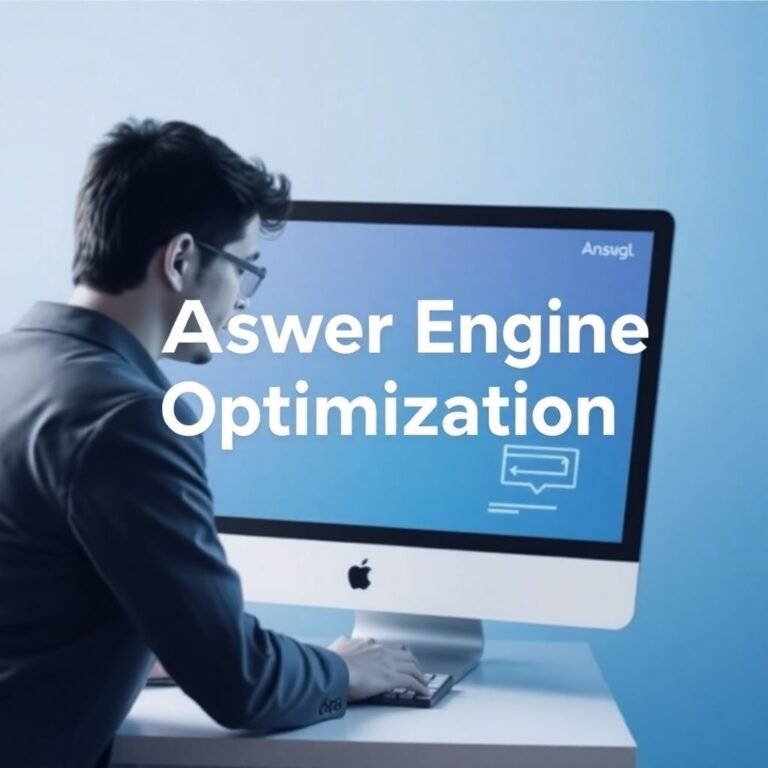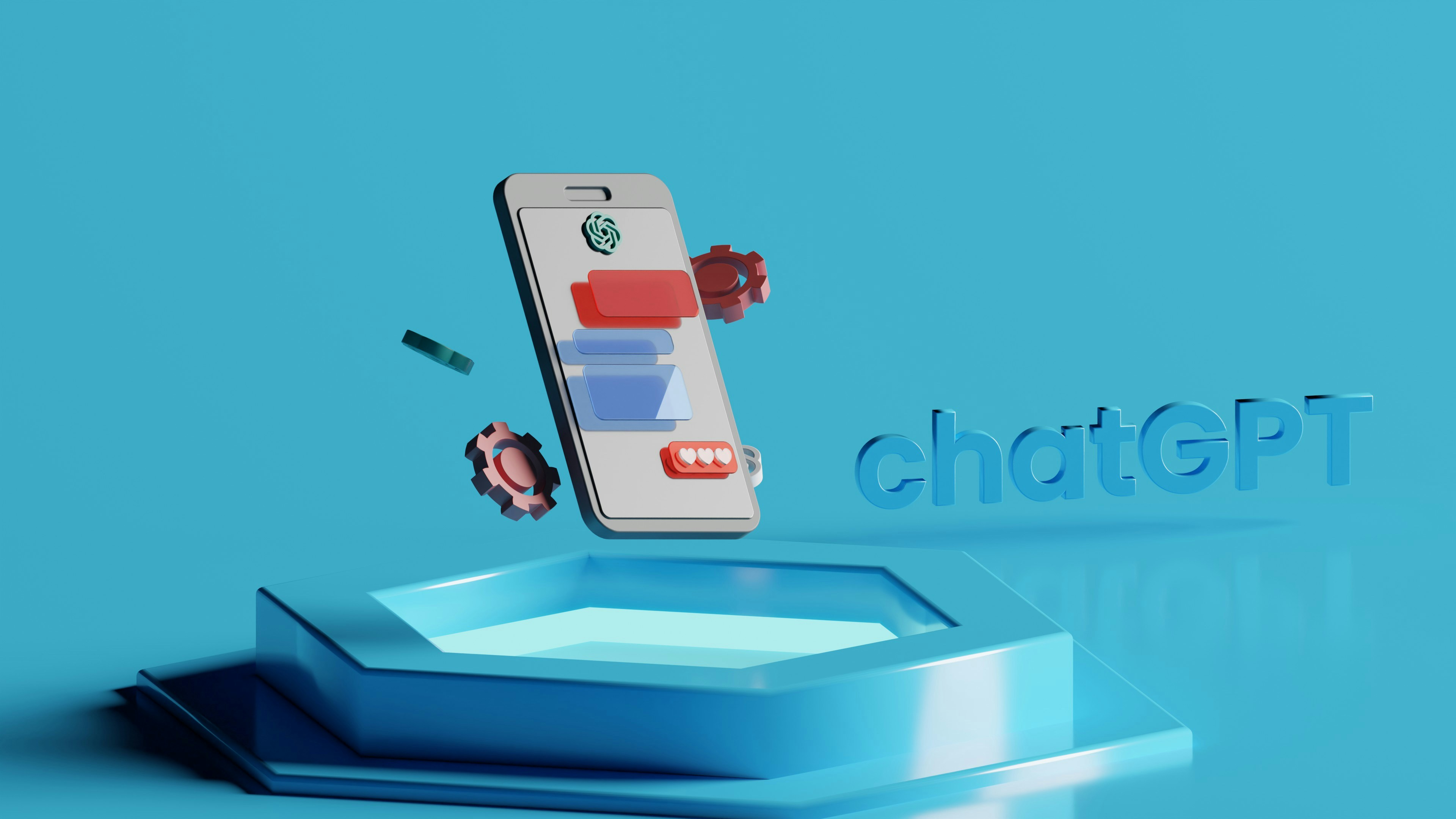How to Use AI for Small Business Marketing in 2025: A Step-by-Step Guide

Introduction to AI in Small Business Marketing
As we look toward 2025, the integration of artificial intelligence (AI) in small business marketing is rapidly becoming a necessity rather than a luxury. The evolution of AI technologies has transformed the marketing landscape, offering small businesses innovative tools that can enhance customer experiences, optimize marketing strategies, and drive sales. In recent years, AI has expanded its influence in the marketing sector, making it imperative for small businesses to adopt these advances to stay competitive.
AI applications can significantly improve how small businesses understand and engage with their target audiences. By utilizing data-driven insights, companies can personalize their marketing messages, analyze consumer behavior, and identify emerging trends. This leads to more tailored campaigns that resonate with customers, thereby increasing conversion rates. Furthermore, AI-powered tools can automate repetitive tasks such as social media posting, email marketing, and customer service interactions, allowing small business owners to focus on strategic growth initiatives.
The advancements in machine learning algorithms and natural language processing have played a crucial role in enabling small businesses to leverage real-time data effectively. These technologies allow for dynamic content generation and customer interaction, ensuring that marketing efforts evolve alongside customer preferences. As a result, small businesses can create more effective marketing strategies that are informed by accurate data analysis, ultimately fostering improved customer relationships and loyalty.
In essence, the integration of AI in marketing strategies offers small businesses the opportunity to enhance efficiency and achieve growth through innovative solutions. Embracing these technologies will not only enable businesses to keep pace with industry trends but will also empower them to provide a high level of service that meets the ever-changing expectations of consumers in 2025 and beyond.
Understanding AI Marketing for Small Businesses
Artificial intelligence (AI) marketing encompasses various strategies and technologies designed to enhance marketing efforts by leveraging machine learning and data analysis. For small businesses, utilizing AI marketing can significantly level the playing field against larger competitors, primarily through automation, personalization, and data-driven decision-making.
Automation in AI marketing helps small businesses streamline their processes, enabling them to save valuable time and resources. This includes tasks such as managing social media accounts, scheduling emails, and generating reports on customer engagement. By automating these functions, businesses can focus on strategic planning and creative aspects of marketing while ensuring efficiency in their operations. Tools powered by AI technology can identify patterns in customer behavior, automatically respond to inquiries, and even segment audiences for targeted marketing campaigns.
Personalization is another critical component of AI marketing that benefits small businesses. AI technology allows for the analysis of vast amounts of consumer data to deliver tailored content, recommendations, and experiences that resonate with individual customers. By utilizing AI algorithms, small business owners can access insights about customer preferences and behaviors, making it possible to create customized marketing messages that enhance customer satisfaction and loyalty. This level of personalization not only improves user experience but also increases the likelihood of conversion.
Data-driven decision-making is at the heart of AI marketing strategies. Small businesses can leverage AI analytics to make informed marketing decisions based on real-time data and insights. This aspect is particularly influential as it allows businesses to identify trends, track the effectiveness of campaigns, and optimize their marketing strategies for better results. By combining automation, personalization, and data-driven insights, small businesses can craft a robust AI marketing strategy that enhances customer engagement and drives growth.
Why AI Matters for Small Business Marketing
Artificial Intelligence (AI) plays a critical role in shaping modern marketing strategies, particularly for small businesses seeking to maximize their efforts with limited resources. The growing relevance of AI in marketing enables small enterprises to automate processes, streamline their operations, and make data-driven decisions, crucial aspects for any business aiming to stay competitive in today’s fast-paced environment.
One of the primary advantages of integrating AI into small business marketing is the significant time savings it offers. Automation tools powered by AI can handle repetitive tasks, such as email campaigns, social media scheduling, and data analysis, allowing marketers to focus on more strategic initiatives. This improved efficiency not only reduces operational costs but also enables smaller teams to achieve more within their limited bandwidth.
Moreover, AI enhances customer targeting capabilities. By analyzing vast amounts of data, AI algorithms can identify and segment target audiences with remarkable accuracy. This segmentation allows businesses to tailor their marketing messages, ensuring that the content resonates with potential customers. Personalized user experiences drive engagement and encourage loyalty, which is especially crucial for small businesses looking to build strong relationships in their communities.
Studies have shown that businesses leveraging AI in their marketing see improved conversion rates. By predicting consumer behavior and preferences, AI solutions can recommend products and services that align with individual needs, increasing the likelihood of purchase. Furthermore, AI-enhanced analytics provide real-time insights into marketing effectiveness, enabling companies to quickly adapt their strategies based on performance data.
Overall, the adoption of AI in small business marketing not only leads to heightened efficiency and better customer targeting but also significantly improves marketing return on investment (ROI). As the marketplace evolves, small businesses that harness AI technology will be better positioned to thrive and maintain a competitive edge.
Top AI Tools for Small Business Marketing
As the landscape of digital marketing continues to evolve, small businesses increasingly turn to artificial intelligence (AI) tools to enhance their marketing efforts. This section presents a curated list of affordable AI tools tailored for small business marketing, categorized by specific use cases, such as content creation, email automation, and SEO optimization. Understanding these tools can help small business owners make informed decisions when integrating AI into their marketing strategies.
For content creation, tools like Jasper and Copy.ai are pivotal. Jasper is designed to generate high-quality written content efficiently, catering to diverse formats and styles. It offers subscription plans starting around $29 per month. Similarly, Copy.ai provides an easy-to-use interface for producing marketing copy, social media posts, and blog content, with pricing options beginning at $19 monthly. Both tools enhance creativity while saving time, making them invaluable for small business marketing.
When it comes to email automation, Mailchimp and Sender stand out. Mailchimp is renowned for its user-friendly platform, allowing businesses to create targeted email campaigns. It offers a free basic plan, making it accessible for smaller enterprises. On the other hand, Sender provides robust features for creating personalized email sequences and automation, starting from $10 per month, thus presenting a cost-effective option.
For SEO optimization, tools such as SEMrush and Ubersuggest are essential. SEMrush offers a comprehensive suite for keyword research, backlink tracking, and site audits, with pricing beginning at $119.95 per month. Ubersuggest provides valuable insights with a more budget-friendly structure, with plans starting under $30 monthly. These tools empower small businesses to improve their online visibility significantly.
By leveraging these AI tools, small businesses can streamline their marketing activities, enhance their outreach, and ultimately drive growth in a competitive landscape.
Step-by-Step Guide to Implementing AI Tools
The integration of artificial intelligence (AI) tools into small business marketing strategies has become increasingly essential in 2025, owing to the rising necessity for efficiency and personalization. To effectively employ AI in your business marketing, consider following this comprehensive step-by-step guide.
First, it is crucial to identify your business goals and the specific challenges you aim to address with AI tools. Understanding these parameters will guide you in selecting the most suitable AI solutions. Conduct thorough research on various AI tools available in the market, focusing on options that align with your objectives, such as customer segmentation, automated email marketing, or predictive analytics.
Once you have determined the tools that best suit your needs, the next step is to choose a vendor or platform. It is advisable to select solutions that offer scalability and user-friendly interfaces, which will facilitate easier integration into your existing marketing systems. Request demos and trial periods to gauge usability and effectiveness before making a final commitment.
After selecting the appropriate tools, focus on setting them up. Depending on the solutions you choose, this may involve integrating the AI tools with your current marketing channels, such as CRM systems or social media accounts. Most platforms provide guides and customer support to assist with this process, ensuring a smooth transition.
Moreover, it is vital to train your team on how to use the AI tools effectively. Organize workshops or training sessions to develop a clear understanding of the functionalities. This will not only enhance their skills but also promote a culture of innovation within your organization.
Lastly, monitor and analyze the performance of the AI tools. Utilize the built-in analytics functions to evaluate metrics, refine your strategies, and ensure that the tools are delivering the anticipated results. Regular assessments are essential to maximize the effectiveness of your AI-driven marketing initiatives.
Strategies for Content Marketing Using AI
In the evolving landscape of digital marketing, artificial intelligence (AI) has emerged as a transformative tool for small businesses looking to enhance their content marketing strategies. By leveraging AI, businesses can generate high-quality blog posts, craft engaging social media content, and improve their storytelling efforts, thus effectively reaching and captivating their target audience.
One of the most significant advantages of using AI is its ability to assist in content generation. AI-powered tools can analyze trending topics, keywords, and audience preferences, providing valuable insights that can inform blog post creation. For instance, by using natural language processing, AI tools can suggest article topics that align with current trends, ensuring that businesses produce relevant content that resonates with readers. Furthermore, these tools can even assist in drafting the content itself, creating a draft that businesses can refine and personalize, thereby saving precious time while maintaining creative control.
Additionally, AI can significantly enhance social media marketing efforts. With the ability to analyze user engagement patterns, AI tools enable small businesses to identify the type of content that performs best across various platforms. By automating the scheduling and posting process, businesses can consistently engage their audience without the burden of manual updates. Furthermore, AI can help in creating visually appealing graphics and short video content tailored to specific demographics, enhancing the overall engagement with social media posts.
Moreover, storytelling is an essential element of content marketing, and AI can streamline this process. By analyzing consumer emotions and preferences, AI can help marketers construct narratives that resonate with their audience. With insights drawn from consumer behavior, businesses can craft compelling stories that not only promote their products or services but also create an emotional connection with their audience, fostering loyalty and encouraging conversions.
In summary, integrating AI into content marketing strategies enables small businesses to optimize their resources, create engaging content, and enhance their storytelling capabilities, ultimately leading to improved audience engagement and business growth.
Optimizing Email Marketing with AI
Email marketing serves as a powerful tool for small businesses seeking to engage their audience and drive conversions. By harnessing the capabilities of artificial intelligence, companies can significantly enhance the effectiveness of their email campaigns in 2025. One pivotal way to optimize email marketing with AI is through automation techniques. Automated email sequences allow businesses to send targeted messages at the right time, thereby improving the chances of capture and engagement. AI can help in creating these workflows based on user behavior, ensuring that customers receive content tailored to their interests and needs.
A second area where AI can drive remarkable improvements is in audience segmentation. Traditional methods of segmenting an email list often rely on broad criteria, but AI-enabled systems can analyze complex data points to identify highly specific audience segments. This segmentation can consider factors such as past purchase behavior, engagement levels, and even demographic information, enabling businesses to send personalized emails that resonate more deeply with their recipients. Such targeted communications ultimately lead to enhanced open and click-through rates, fostering customer loyalty.
Data analysis stands as another critical component of optimizing email marketing through AI. By leveraging predictive analytics, small businesses can anticipate customer behavior and preferences, tailoring their email strategies accordingly. AI can sift through vast datasets to identify trends and patterns, providing valuable insights into which subject lines, content formats, and sending times yield the best results. Small businesses can continuously refine their approach, learning from each campaign, and driving their email marketing strategy forward in a data-driven manner.
As small businesses adopt AI for their email marketing, they stand to create more effective, engaging, and efficient campaigns, ultimately leading to improved results and customer satisfaction.
Leveraging AI for Paid Advertising
Artificial Intelligence (AI) has become an essential tool for small businesses looking to enhance their paid advertising strategies. By leveraging AI algorithms, businesses can optimize various facets of their advertising efforts, thereby maximizing efficiency and return on investment (ROI). One of the primary applications of AI in paid advertising is in the ad creation process. AI tools can analyze vast amounts of consumer data to identify trends and preferences, enabling businesses to create tailored advertisements that resonate with their target audience. This personalized approach not only improves engagement but also enhances the overall effectiveness of ad campaigns.
Another crucial area where AI plays a significant role is in audience targeting. AI technologies can segment audiences based on behavior, demographics, and preferences, allowing businesses to reach specific consumer groups with precision. Utilizing advanced AI-powered targeting solutions can increase the relevance of ads shown to potential customers. When ads are shown to individuals who are most likely to convert, businesses can improve click-through rates (CTR) and conversion rates, ensuring that advertising budgets are spent wisely and effectively.
Moreover, AI can significantly improve the performance analysis of paid advertising campaigns. Through the use of machine learning algorithms, businesses can evaluate real-time results and determine which ads are performing well and which are not. This data-driven approach enables swift adjustments to campaigns, optimizing ad placements and budget allocations. AI analytics can also reveal insights into customer behavior and preferences, which can inform future marketing strategies. By continuously utilizing these insights, small businesses can refine their advertising efforts to align with consumer interests and market trends, ultimately leading to better ROI.
Success Stories: Real-World Examples of AI in Small Business Marketing
As small businesses explore innovative methods to enhance their marketing strategies, the effective integration of Artificial Intelligence (AI) emerges as a game-changer. Numerous small companies are harnessing AI technologies to not only optimize their marketing efforts but also drive significant growth and customer satisfaction. Below are compelling case studies that exemplify the successful application of AI in small business marketing.
One notable example is a local boutique, “Chic Picks,” which implemented an AI-driven recommendation system to enhance customer engagement. By analyzing past purchasing data and customer preferences, this small business was able to offer personalized product suggestions, leading to an impressive 25% increase in sales. Additionally, Chic Picks utilized AI chatbots on their website to address customer inquiries round the clock, improving response times and overall customer satisfaction.
Another success story comes from a small bakery, “Sweet Bites,” which embraced AI for targeted advertising campaigns. Through AI analytics, Sweet Bites was able to identify market trends and customer demographics. This information allowed them to tailor their marketing messages and promotions effectively. Within months, they witnessed a 40% boost in foot traffic and online orders. The bakery also used machine learning algorithms to optimize their inventory management, minimizing food waste and maximizing profits.
Furthermore, a startup called “EcoClean” employed AI to refine their social media marketing strategies. By utilizing AI tools that analyzed user engagement metrics and content, EcoClean was able to determine the most effective posting times and types of content for their audience. This strategic approach resulted in a growth of their online follower base by 60% and a marked increase in customer inquiries about their environmentally-friendly services.
These success stories illustrate that small businesses can achieve remarkable results through AI-driven marketing. By leveraging AI technologies for personalized recommendations, targeted advertising, and optimized engagement, small businesses are paving the way for enhanced customer experiences and increased profitability. The benefits of AI are not just theoretical; they are tangible outcomes that inspire others to adopt similar strategies.
Conclusion and Future Trends in AI for Small Business Marketing
In the rapidly evolving landscape of small business marketing, artificial intelligence (AI) has emerged as a transformative force, offering businesses innovative tools and strategies to engage their customers effectively. Throughout this guide, we have explored how small businesses can harness the power of AI for various marketing applications, from personalized content creation to targeted advertising. These applications not only streamline operations but also enhance customer experiences, fostering brand loyalty and increasing revenue.
Looking ahead, the future of AI in small business marketing promises to be even more dynamic. Emerging technologies, such as advanced machine learning algorithms and natural language processing, are set to further refine how businesses gather and analyze customer data. These advancements will enable small businesses to gain deeper insights into consumer behavior, allowing for hyper-personalized marketing strategies that resonate with their target audience.
Additionally, as consumer expectations continue to evolve, small businesses will need to adapt their marketing approaches accordingly. High transparency, relevancy, and immediacy will become increasingly important as consumers demand tailored interactions and prompt responses. AI tools, such as chatbots and predictive analytics, will play a crucial role in shaping these interactions and enhancing customer satisfaction.
Furthermore, the integration of AI with other technologies, such as augmented reality (AR) and the Internet of Things (IoT), may provide even more opportunities for innovative marketing approaches. As these technologies converge, small businesses must remain agile and willing to experiment to leverage new capabilities that AI presents. To stay competitive, it is essential for small business owners to continuously educate themselves on AI advancements and the potential implications for their marketing strategies.
In conclusion, the integration of AI into small business marketing not only offers immediate benefits but also positions businesses for long-term success in an increasingly digital marketplace. Embracing these trends will be pivotal as we move towards 2025 and beyond.
Read more
Conversational AI : How It’s Transforming Customer Interaction in 2025




You’re spot on about AI being more of a necessity than a luxury now. I’ve seen firsthand how even basic automation tools can drastically reduce time spent on repetitive tasks and open up more room for creative strategy.
It’s interesting to see how far AI has come in terms of personalization. I’d be curious to hear how small businesses can balance automation with keeping their brand voice authentic—especially as customer expectations evolve so quickly.